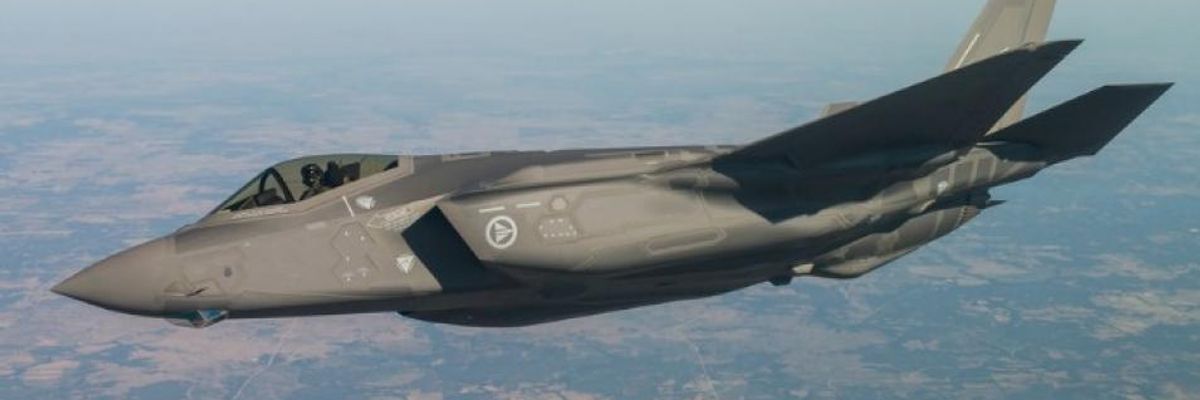Should the United States build a permanent military base in Poland? Dangle a couple billion dollars in front of Donald Trump -- who seems to see himself as America's premier arms merchant, when he's not using the presidency to make money for himself and his family -- and you can see his eyes light up. "Fort Trump," we will call it, suggested Poland's president Andrzej Duda, who knows how to manipulate an insatiable ego.
Trump responded positively: "Poland would be paying billions of dollars for a base, and we are looking at that."
But even some of the more hawkish military analysts, such as Ben Hodges, commander of US Army Europe from 2014 to 2017, have argued that this is "unnecessarily provocative."
But even some of the more hawkish military analysts, such as Ben Hodges, commander of US Army Europe from 2014 to 2017, have argued that this is "unnecessarily provocative." The idea was roundly rejected by the US and Germany when it was suggested in 2016.
If the power of the weapons industry were to prevail, however, it wouldn't be the first time. In fact, that's a big part of the story of how we got in this New Cold War in the first place. From The New York Times' reporting:
"At night, Bruce L. Jackson is president of the U.S. Committee to Expand NATO, giving intimate dinners for Senators and foreign officials. By day, he is director of strategic planning for Lockheed Martin Corporation, the world's biggest weapons maker."
That was 1997. Two years later, Poland, Hungary, and the Czech Republic would join NATO, hauling in billions of dollars of arms sales. Ten more countries would join over the next nine years, bringing NATO's military to Russia's doorstep.
The United States and Germany promised Russia in 1990, as the Soviet Union was collapsing, that they would not expand NATO even "an inch" to the East. Although many Americans have forgotten World War II, the Russians have not; they lost 27 million people to Nazi invaders. Needless to say, they are not fond of the violent neo-Nazis that the US government has supported in Ukraine, or the idea that Ukraine could end up with the next NATO military base, on their border.
Americans are understandably upset about any foreign interference in our elections. As are Hondurans, Chileans, Haitians, Nicaraguans, Italians, Iranians, or citizens of scores of other countries where the United States has intervened much more heavily -- sometimes with military coups to reverse results -- in elections.
These are the most important structural causes of the New Cold War, not Russia's annexation of Crimea -- which violated international law -- or Russian interference in the 2016 US presidential election. Americans are understandably upset about any foreign interference in our elections. As are Hondurans, Chileans, Haitians, Nicaraguans, Italians, Iranians, or citizens of scores of other countries where the United States has intervened much more heavily -- sometimes with military coups to reverse results -- in elections. This includes Russia itself, where Americans organized and spent heavily to reelect their ally, Boris Yeltsin, in 1996.
Election expert Nate Silver noted this week that Russian troll farms, memes and Tweets were much too small and without evidence of effectiveness to have made a difference in the 2016 election. But in any case, the New Cold War with Russia has deeper structural causes that will not be resolved through sanctions, threats, and certainly not by expanding NATO's military encirclement of Russia. Ironically, despite Trump's personal friendliness with Putin -- and whatever private financial gains he has sought there -- he has been more aggressive toward Russia through stepped-up sanctions, sending lethal weapons to Ukraine, proposing to abandon the Intermediate-Range Nuclear Forces Treaty, and continuing to expand NATO.
This is no way to manage relations between the two countries that have the vast majority of the world's nuclear weapons. Of course, even talking about a new military base in Poland shows how far US foreign policy toward Russia has descended into stupidity and recklessness. It will take much more public awareness and political mobilization to reverse course.

